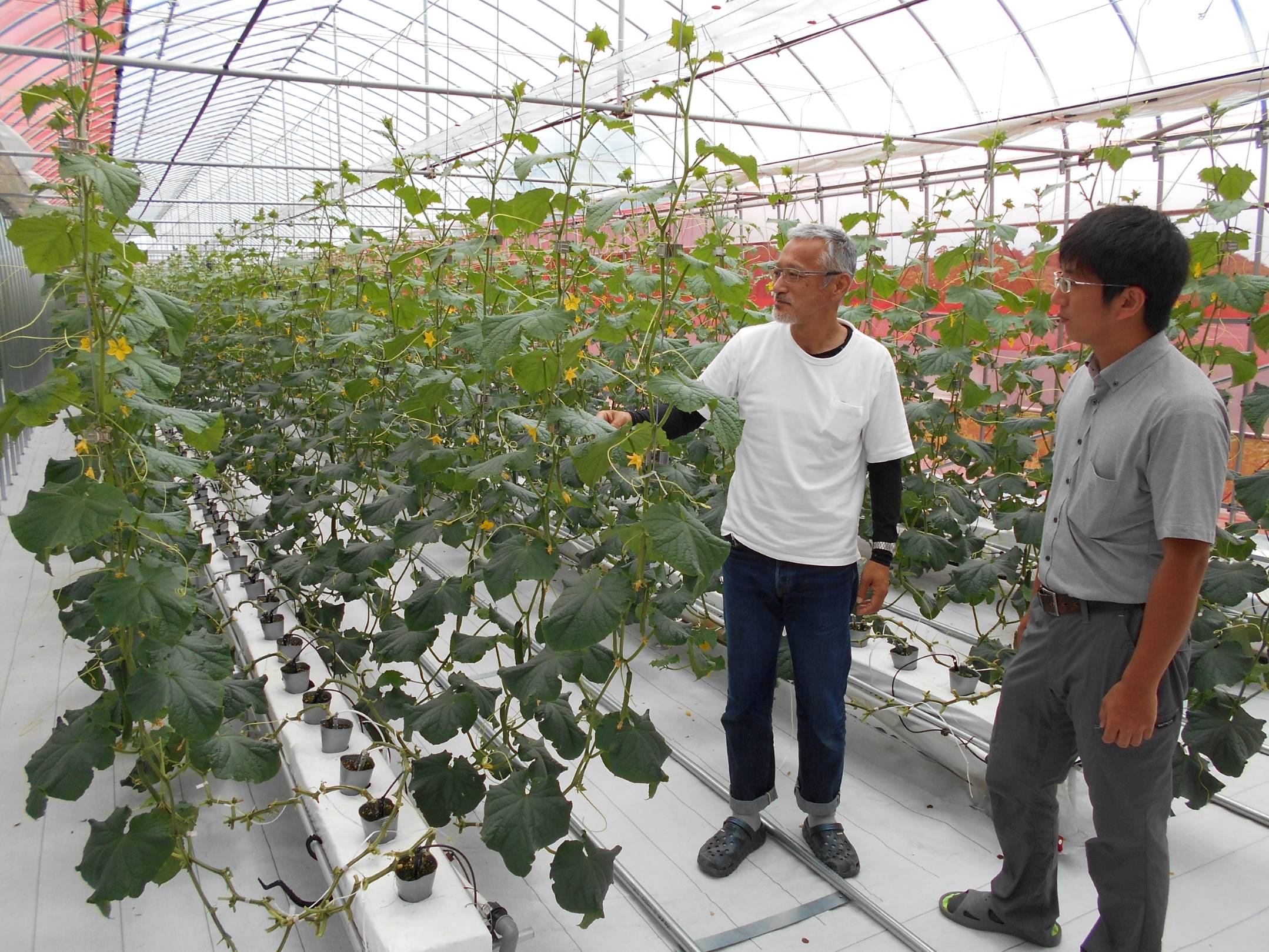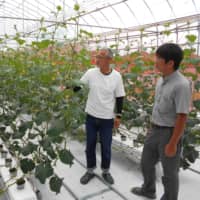Three ventures from the IT and farming industries have started testing methods to produce cucumbers with less human labor in Sukagawa, Fukushima Prefecture, in the hope that it will reinvigorate the agriculture industry suffering from a worsening labor shortage, including a lack of successors.
Two technology companies, Benefic Co. and MK tech, have teamed up with Fukushima Seed Center and established a project team called Smart Agri Fukushima.
The team created a 1,300-square-meter testing greenhouse, planted 2,000 cucumbers and is monitoring temperatures, humidity and carbon dioxide among other data remotely using robots. The team has already shipped 1.6 tons of produce to a local agricultural cooperative, with a plan to expand the greenhouse to 1 hectare, or eight times the current scale, in the next five years.
In developing robots to monitor the cucumbers, Benefic will be in charge of its software while MK tech will manufacture the hardware. In the greenhouse, cucumbers are produced through a unique hanging method, which makes it easier for robots to monitor the produce, rather than the usual method which is to cut the plant at a certain height.
According to the seed center, the Sukagawa area, well-known for cucumbers, has been struggling for years with a shortage of labor, causing farmers to automate the farming process to make it more attractive to younger people. In the future, they hope to spread the smart farming method nationwide.
“We want to protect cucumber farming by making the fields less labor intensive,” said Katsumi Hashimoto, president of the seed center.
This section features topics and issues covered by the Fukushima Minpo, the prefecture’s largest newspaper. The original article was published July 8.




















With your current subscription plan you can comment on stories. However, before writing your first comment, please create a display name in the Profile section of your subscriber account page.